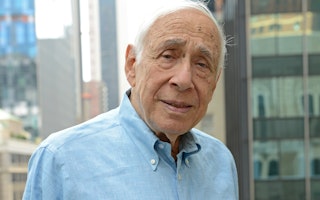Let’s Reduce, Not Reform, Policing in America
By Rachel Herzing

The United States is facing a policing crisis. Far from being a new issue, as the media might have us believe, this crisis extends back to the country’s earliest days, when plantation owners and their legislative counterparts felt it necessary to suppress the activities of the African peoples they conscripted into slavery.
Policing has always been a crisis for the black community in the United States. Recent attention to police shootings has generated a refreshed wave of protest and calls for all manner of police reforms: better training, more body and dashboard cameras, expanded data collection efforts.
Maybe instead of thinking about how to improve policing, however, we would do better to reduce the role law enforcement plays in our day-to-day lives.
Let’s begin by understanding policing for what it is: the armed enforcement of the interests of the most powerful over those who would challenge that power. Seeing policing this way helps us reject questions of protecting and serving and instead raise questions about why we would want to improve policing’s ability to contain and control us. Would we not, rather, try to curtail its reach and constrain its ability to do its work?
And while the horrifying murders at the hands of law enforcement are getting desperately needed attention, the breadth of the violence of policing spans well beyond police shootings to physical, sexual, psychological, and economic harm and coercion; to the public humiliation and the grinding ubiquity of stop-and-frisk; to the racial, gender, and sexual profiling used to criminalize people “who don't belong”; to militarized assaults on families in their homes; to suppressing political dissent.
We know that the surest way to reduce the violence of policing is to reduce contact with it. So rather than developing new tools, extending training, or collecting more data in hopes of improving how policing happens, our best work may be to imagine how we can shrink the size and scope of police forces, reduce the number of gadgets at cops’ disposal, and constrain their ability to ensnare us, while continuing to build on the already substantial foundation of work happening to mitigate and reduce the harms we do to each other without law enforcement intervention.
As these ideas become increasingly mainstreamed, more and more groups, both formal and informal, are popping up to help people take practical steps to decouple safety from law enforcement. Last winter, I was lucky to be invited to Chicago’s DePaul University in collaboration with the Building Communities, Ending Violence project. This program helps train students in a variety of community-based intervention strategies that they practice in the campus environment, then carry with them wherever their paths take them post-graduation.
In Eugene, Oregon, similar efforts are underway. Crisis Assistance Helping Out on the Streets is a project doing street-based crisis intervention. Residents calling emergency services are, upon request, redirected to physical and psychological crisis support, without the involvement of law enforcement.
And in California, the Oakland chapter of Critical Resistance launched the Oakland Power Projects as a vehicle for seeding local efforts to increase area residents’ confidence and skills to respond to crisis without police intervention. In its first set of projects, Critical Resistance collaborated with a variety of health and medical workers to provide community training on ways to respond to acute injuries, mental health crises, and chronic health emergencies without involving law enforcement.
This handful of examples is just the tip of the iceberg—programs and campaigns to decouple safety from law enforcement are underway across the country. Now is the time to consider these efforts as an alternative to the policing taking place in the country right now, and to the conversations that naturalize the role of policing in U.S. society.
As the latest spate of police killings, including that of Alfred Olango in El Cajon, California, painfully reminds us, the current system is working precisely as it is meant to. Improving this machine surely means more deaths to come. There has got to be a better way.
Rachel Herzing is a 2015 Soros Justice Fellow and cofounder of Critical Resistance.

